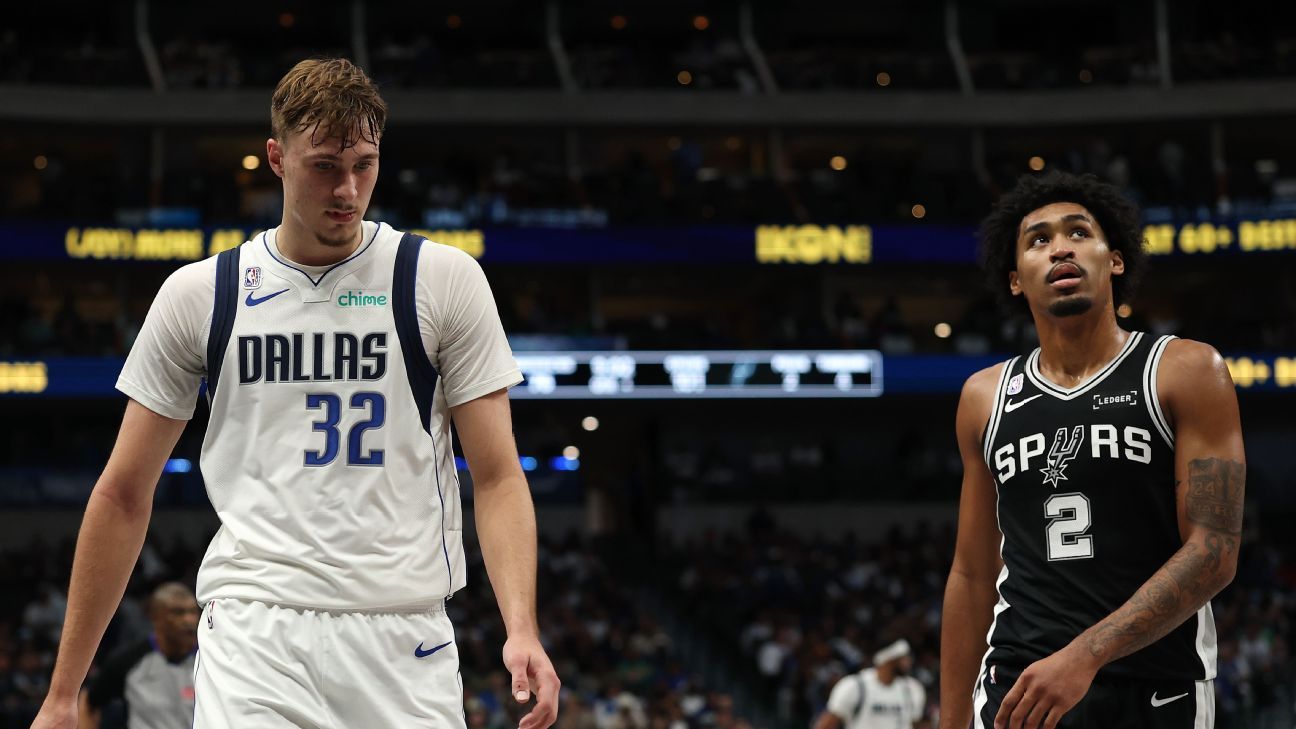Paul Tagliabue, who served as NFL commissioner for 17 seasons as the league experienced tremendous prosperity and growth, died Sunday morning at the age of 84, his family announced.
The apparent cause of death was heart failure complicated by Parkinson’s disease.
Tagliabue became commissioner in 1989, succeeding Pete Rozelle. He was succeeded by current Commissioner Roger Goodell in 2006.
“Paul was the ultimate steward of the game — tall, unassuming in presence and resolute in his loyalty to the NFL. He viewed every challenge and opportunity through the lens of what was best for the greater good, a principle he inherited from Pete Rozelle,” Goodell said in a statement Sunday.
“I am forever grateful and proud to have Paul as my friend and mentor. I have cherished the countless hours we spent together as he helped shape me as a CEO but also as a man, husband and father,” Goodell added.
The value of many of the league’s franchises increased tenfold during Tagliabue’s tenure in the commissioner’s chair. When he left, more than two-thirds of the NFL’s 32 teams were playing or building stadiums that did not exist when he took over as commissioner in 1989. The league also added four teams — the Carolina Panthers (1995), Jacksonville Jaguars (1995), the current Cleveland Browns (1999) and the Houston Texans (2002) — during his tenure, going from 28 teams to 32 teams.
He was elected to the Pro Football Hall of Fame as a contributor in 2020.
“In examining what makes the NFL so compelling, I always go back to the players who made the game what it is,” Tagliabue said during his Hall of Fame induction speech. “Athletes who thrive in the competitive environment of the National Football League tend to be highly motivated individuals with clear values and exceptional goals. … We need to respect players for possessing these qualities and for what they represent as leaders in sports and in society.”
Tagliabue was commissioner during two of the biggest crises in modern American history — the terrorist attacks of September 11, 2001, and Hurricane Katrina in 2005. Tagliabue canceled weekend NFL games in the wake of September 11, paving the way for other sports leagues to follow suit.
“I was convinced that there was no real historical counterpart to the (September 11) attacks,” Tagliabue wrote in his 2017 memoir, “Jersey City to America’s Game.” “… In a conference call on Wednesday with the working group of owners, I told them, ‘This is not the Kennedy assassination. This is not Pearl Harbor. “It’s worse. ‘I knew I couldn’t support playing any games this weekend.’
He also confirmed that the Saints would return to New Orleans after being displaced to San Antonio during the 2005 season due to Hurricane Katrina.
When he announced his retirement in 2006, Tagliabue said the greatest accomplishment during his tenure was “building a strong relationship with the NFL Players Association,” noting that “everyone involved in the NFL in the 1980s saw that as a negative.”
Working with players union executive Gene Upshaw and following the advice of the late Pittsburgh Steelers owner Dan Rooney not to give “too much weight to any owner,” Tagliabue helped restore peace in owner-player relations after labor strikes in 1982 and 1987. There were no work stoppages during his 17-year tenure. The league also enjoyed historic television contracts, and under Tagliabue, free agency and a salary cap were introduced.
“The system put every team on almost equal footing in the football competition, and it took a great player and a great owner,” Tagliabue said of Labor Peace. “It took Gene Upshaw and Dan Rooney to come to this kind of compromise and this kind of solution to a complex problem.”
Tagliabue implemented a drug abuse policy that was considered the strongest in all major sports. He also established the “Rooney Rule” under which all teams with coaching vacancies must interview minority candidates. It has since been expanded to include executive positions in front offices and the league.
Tagliabue said his biggest regret as commissioner was allowing both the Rams and Raiders to leave Los Angeles after the 1994 season — the Rams for St. Louis and the Raiders for Oakland before moving to Las Vegas in 2020. The Rams returned to Los Angeles from St. Louis for the 2016 season, with the Chargers joining them in 2017 after relocating from San Diego.
The Browns and Oilers also moved during his tenure. The Browns moved to Baltimore to become the Ravens in 1996 and the Oilers moved to Tennessee to become the Titans in 1997.
After retirement, Tagliabue was appointed by Goodell in 2012 to hear the appeals of four players suspended in the Saints’ “Bountygate” case. Tagliabue overturned the suspensions, saying that while three of the four players had engaged in conduct detrimental to the league, the case had been “tainted by the coaches and others in the Saints organization.”
Tagliabue also served as Chairman of the Board of Regents of Georgetown University from 2009 to 2015.
Prior to his legal career, Tagliabue was a standout college basketball player at Georgetown University. Before taking over as commissioner, Tagliabue was an attorney for the league and spent much of that time as an NFL representative and unofficial lobbyist in Washington.
He is survived by his wife, Chandler, his son, Drew, and his daughter, Emily.
ESPN’s Adam Schefter and the Associated Press contributed to this report.













